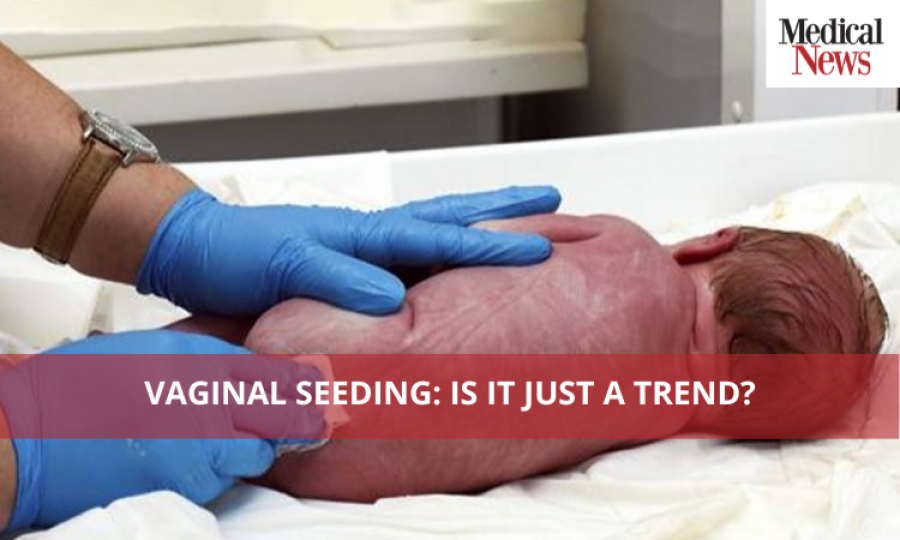Vaginal seeding: is it just a trend?

A modern practice called ‘vaginal seeding’ has been adopted by a lot of mothers all over the world in the case that the baby is born through a C-section. This process entails the birth canal microbes being introduced to cesarean babies. But some doctors are cautioning against it making it a controversial practice.
Why and how is it done?
The ‘water breaking’ component and the birth through the canal exposes the baby to a lot of microbes that are considered healthy microbes. Babies born through C-section become devoid of this interaction and some researchers say that these babies develop several immune-related problems later in life. Vaginal seeding, also known as microbirthing - is a procedure where the doctors take a swab from the mother’s vagina and wipe this over the baby’s mouth, eyes, face, and skin just after their cesarean birth. The assumption is that the vaginal microbes will create a collection of bacteria equal to that of a baby delivered vaginally. As a result, this will reduce microbial infection risk in the babies and lower the chances of immune disorders. But the question arises of whether it works? And the answer is that doctors are not sure about this.
Potential risks
There is a huge risk of transmitting potential life-threatening infections like group B strep, herpes, Chlamydia, HIV, and gonorrhea. The benefits of this practice are not backed by large group studies or multiple researches. The American College of Obstetricians and Gynecologists (ACOG) also advised against this keeping in mind the harm the babies could be put in due to this practice. On the other hand, it is also clear that not every baby born via C-section will develop any sort of disease later in life, such as an allergy or asthma.
What can be done instead?
To develop a healthy immune system in babies doctors have advised breastfeeding and skin-to-skin contact. This will aid in microbial transfer without the risk of transmitting dangerous bacteria. Moreover, avoiding unnecessary antibiotics also plays a helpful role.
There is a lot of research that needs to be done to prove vaginal seeding effective and safe in the future and even then one should remain cautious about their unique vaginal microbiome and consider the risks before blindly opting for it, for the sake of trends.
Trending
Popular
Sindh pledges vigorous action to prevent poliovirus transmission
-
PMA stresses health equity on World ...
04:08 PM, 9 Apr, 2024 -
Dow University’s new rabies vaccine ...
12:18 PM, 28 Mar, 2024 -
IRD role lauded in advancing ...
02:53 PM, 12 Mar, 2024 -
Over one billion people worldwide ...
09:48 AM, 5 Mar, 2024




